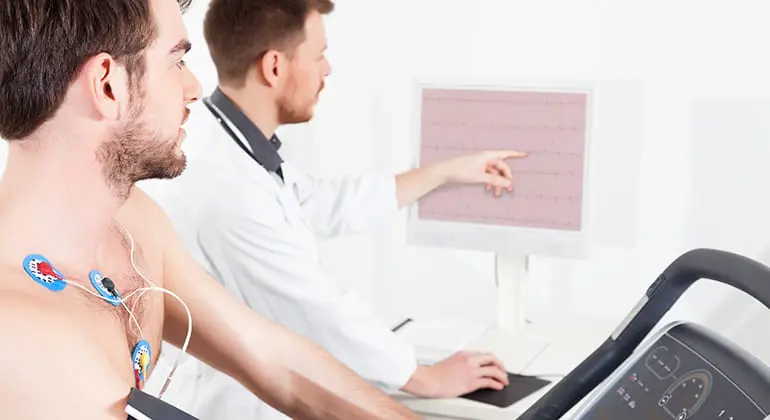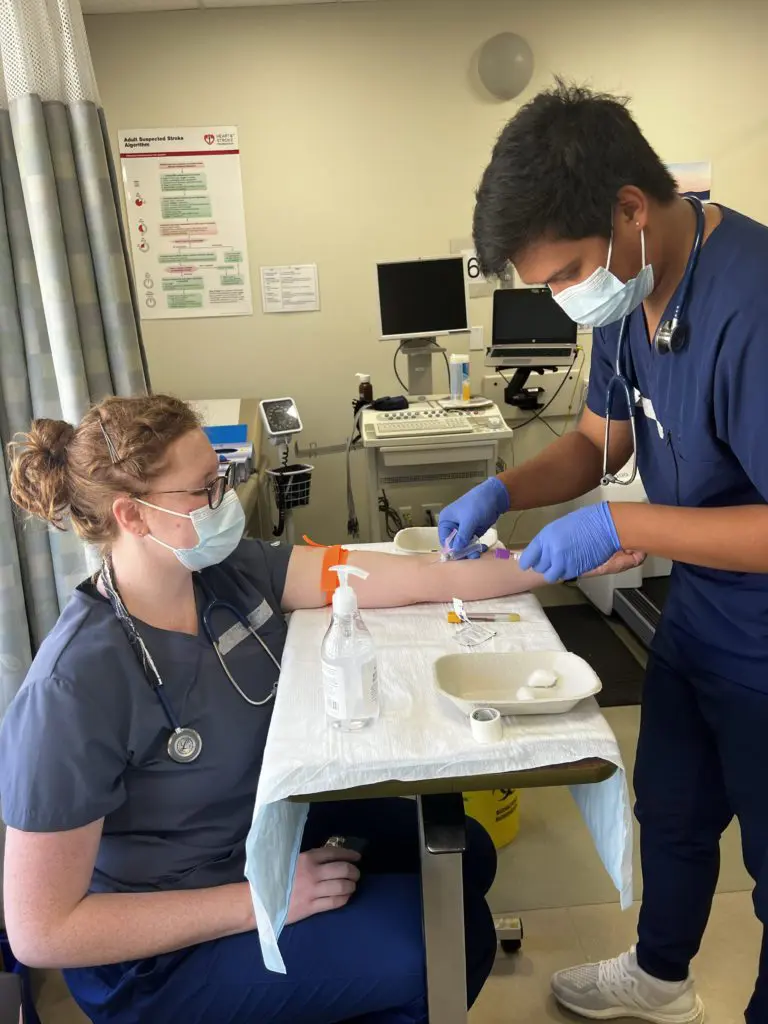The Heart and Stoke Foundation estimates that as many as 90% of Canadians have at least one of the main risk factors for heart disease, such as obesity, high blood pressure, or cholesterol.
With so many people at risk, Cardiac Stress Testing can be a valuable tool in determining any heart issues early on. Stress testing also plays an important role in treating patients who have suffered heart attacks.
Cardiology technologists are responsible for conducting this procedure, taking patients through every stage of the process and ensuring results are recorded accurately for analysis.
If you are planning to enroll in Cardiology Technologist courses, or you’ve recently started your program, read on to learn more about Cardiology Stress Testing.

What is Exercise Stress Testing?
The most common type of Cardiology Stress Testing is the Exercise Stress Test. In this process, patients are asked to walk on a treadmill or pedal on an exercise bike for as long as possible, with the Cardiology Technologist gradually increasing the level of difficulty or intensity.
A certified Technologist will first measure a patient’s resting heart rate and blood pressure, then he or she will attach ten adhesive electrodes to the chest. This will enable the technologist to monitor the patient’s ECG (Electrocardiogram, or the heart’s electrical activity) readings continuously during the test.
This process measures how well the patient’s heart deals with different levels of exertion. The results are then written down and sent to a cardiologist, who will look to identify any problems.
Responsibilities of a Cardiology Technologist during Exercise Stress Tests
A cardiologist will always be on hand during a test should an emergency arise. However, during the procedure, the Technologist is primarily responsible for the patient’s wellbeing. Here are some of the important things professionals in Cardiology Technologist careers are required to keep in mind when performing this procedure:
- Ensure the patient has signed all relevant forms, followed preparation guidelines, and that their medical history was provided.
- Ensure the patient exercises for as long as possible in order to get a complete and accurate reading.
- Make sure the patient knows that they should speak up if they experience any chest or arm pains, dizziness or other unusual symptoms.
- Monitor the ECG continuously and be prepared to stop the test immediately if any anything warning signs appear.
Different Types of Cardiology Stress Tests
While Exercise Stress Testing is the most common, there are also other types of Cardiology Stress Tests, which are used as alternatives or compliments to the treadmill test.
A Dobutamine Stress Test is done when dealing with patients who are physically unable to exercise. Dobutamine is a drug which, when consumed, makes the heart respond as it would if the person were exercising, thus allowing a response to stress to be measured.
Stress Echocardiogram refers to an ultrasonic imaging process which uses sound waves to produce images of the heart, and can detect problems that don’t show up on other types of tests.
In a Nuclear Stress Test, a small amount of radioactive tracing substance is injected into the patient. The Technician then uses a gamma camera to capture images of different parts of the heart, in order to identify areas of reduced blood flow.
The Benefits of Cardiology Stress Testing
Doctors may recommend stress tests to patients who may be at risk of developing heart problems, or who have already been diagnosed with a heart condition. Cardiac Stress Testing is relatively safe when supervised by a Cardiology Technologist and medical support staff. Additionally, it can be beneficial at a number of stages during a heart disease sufferer’s treatment.
Cardiology tests can be useful for:
- Determining if there is adequate blood flow to the heart during periods of exertion.
- Identify irregular heartbeats.
- Measuring the effectiveness of heart medications.
- Detecting coronary artery disease.
- Monitoring a heart attack victim’s recovery and helping them develop safe exercise programs.
Check out a video of our cardio tech students in action.





![An ECG demonstrates the extensive antero-septal-lateral myocardial infarction [heart attack] that Taryn witnessed.](https://stenbergcollege.com/wp-content/smush-webp/2022/12/ecg-1024x530.jpg.webp)





